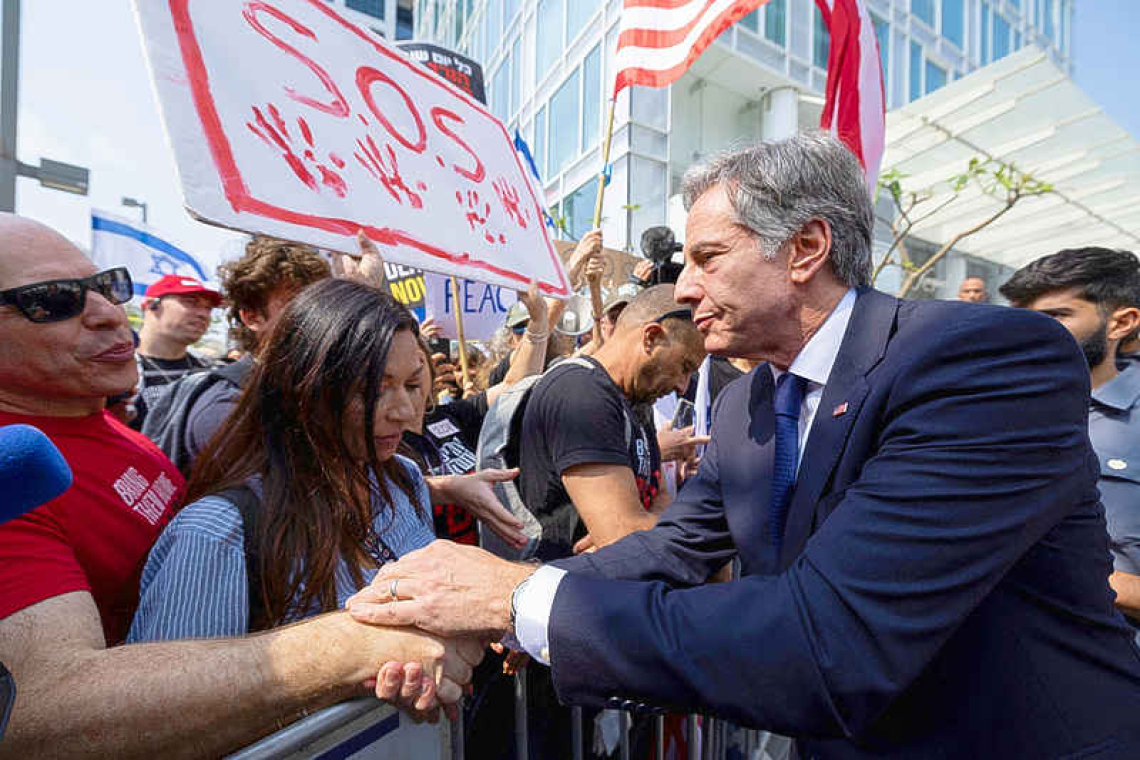ASHDOD, Israel--U.S. Secretary of State Antony Blinken said on Wednesday he has still not seen a plan for Israel's planned offensive on the southern Gaza city of Rafah that would protect civilians, repeating that Washington could not support such an assault.
Blinken and Israeli Prime Minister Benjamin Netanyahu met in Jerusalem for two-and-a-half hours, after which Israel repeated that the Rafah operation would go ahead despite the U.S. position and a U.N. warning that it would lead to "tragedy". "We cannot, will not support a major military operation in Rafah absent an effective plan to make sure that civilians are not harmed and no, we've not seen such a plan," Blinken told reporters. "There are other ways, and in our judgment better ways, of dealing with the ... ongoing challenge of Hamas that does not require a major military operation in Rafah," he said, adding that it was the subject of ongoing talks with Israeli officials. An Israeli government spokesperson said Israel remained determined to destroy the remaining Hamas fighting formations. "When it comes to Rafah - we are committed to remove the last four of five Hamas battalions in Rafah - we are sharing our plans with Secretary of State Blinken," the spokesperson told a regular briefing. Israel is the final stop on the top U.S. diplomat's Middle East tour, his seventh visit to the region which was plunged into conflict last October when Hamas attacked southern Israel. It has largely focused on efforts to improve humanitarian conditions in Gaza. Blinken spoke at Israel's main port, Ashdod, and praised "meaningful progress" in recent weeks on humanitarian access, including by allowing flour for Gaza to flow through the port, as well as by opening up new border crossings. "The progress is real but given the need, given the immense need in Gaza, it needs to be accelerated, it needs to be sustained," he said. Blinken asked Israel's government to take a set of specific steps to facilitate aid to Gaza, where nearly half the population are suffering catastrophic hunger, he said. The United States is Israel's main diplomatic supporter and weapons supplier. Blinken's visit comes about a month after U.S. President Joe Biden issued a stark warning that Washington's policy could shift if Israel fails to take steps to address civilian harm, humanitarian suffering and the safety of aid workers.







